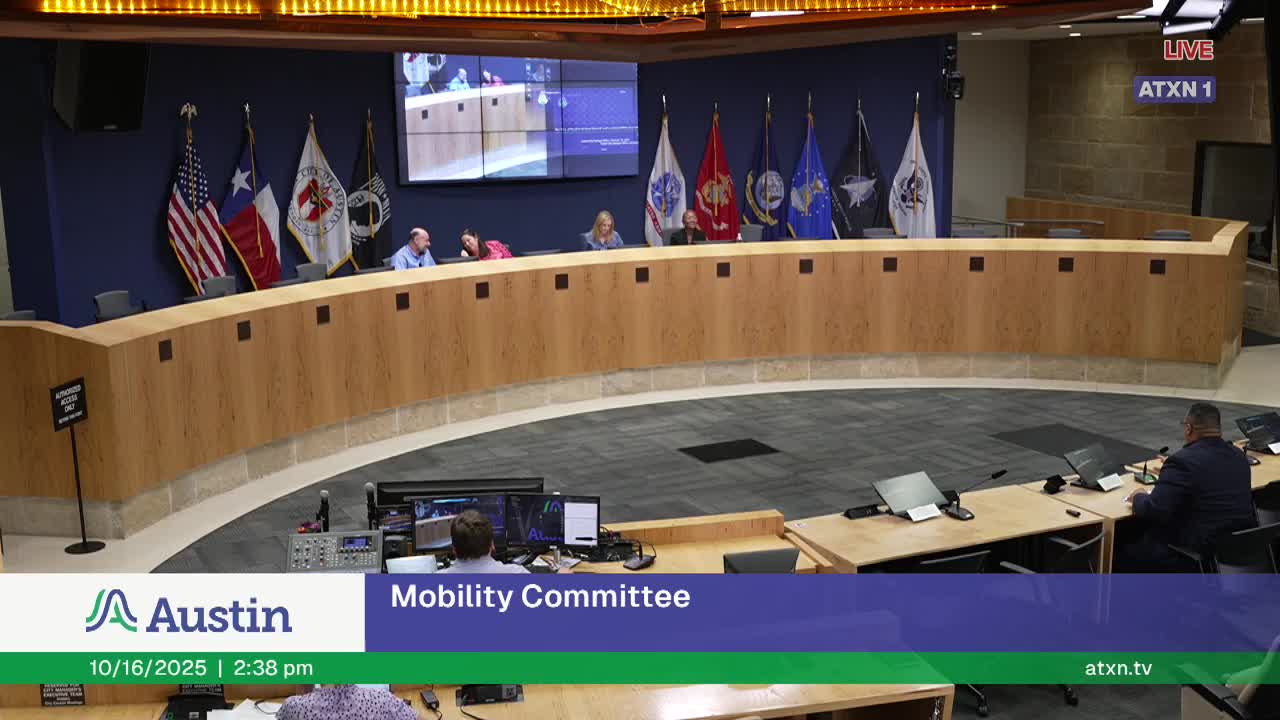City official urges early local planning for eVTOL air taxis, warns against repeating freeway‑era harms
Get AI-powered insights, summaries, and transcripts
Subscribe
Summary
Assistant City Manager Mike Rogers briefed the Mobility Committee on Oct. 16 about electric vertical takeoff and landing aircraft (eVTOLs), urging early local land‑use planning, safety standards, grid and charging preparedness, and community engagement to avoid the equity harms that accompanied past highway construction.
Assistant City Manager Mike Rogers told the Mobility Committee on Oct. 16 that electric vertical takeoff and landing aircraft — commonly called eVTOLs or “air taxis” — are advancing rapidly and that cities should start planning now for vertiports, charging infrastructure, land‑use and equity impacts.
“These vehicles need a place to land,” Rogers said, noting vertiports are likely to occupy rooftops, parking garages or new ground‑level hubs and will require charging and multimodal access. He urged local planning to consider retrofitting structures for aviation standards, demand on the electric grid, and last‑mile connections.
Rogers pointed to rapid private investment and federal steps that could accelerate deployment: he said the federal government has taken steps to speed FAA certification and described a new FAA advanced air mobility integration pilot program designed to test and integrate new aircraft into the national airspace.
Rogers framed the issue as both an opportunity and a risk. He asked committee members to study history: construction of the national highway system often routed freeways through majority‑Black neighborhoods and, he said, “when those freeways came in…that neighborhood…died,” describing how past transportation decisions produced long‑term dislocation and inequity. Rogers urged the city to apply four principles — empathy, ethics (transparency and fairness), excellence (safety and design standards) and engagement — and to ensure equity in access if eVTOLs arrive.
He noted some cities and firms are already planning networks; Archer and other companies have public demonstrations and announced agreements for high‑profile events such as the 2028 Los Angeles Olympics. Rogers said operators are already exploring rooftop vertiports and garage conversions, which raise questions about zoning, parking, noise, privacy and land‑value shifts.
Committee members asked about jurisdictional limits and safety. Rogers said FAA regulation and federal pilot programs will guide airspace integration, but added that cities should be proactive about land use, zoning and infrastructure coordination — including electric utilities and transit connections — rather than react to deployments after agreements are struck.
Rogers urged continued intergovernmental engagement and offered to coordinate follow‑up conversations with planning and housing committees about zoning and infrastructure implications.
